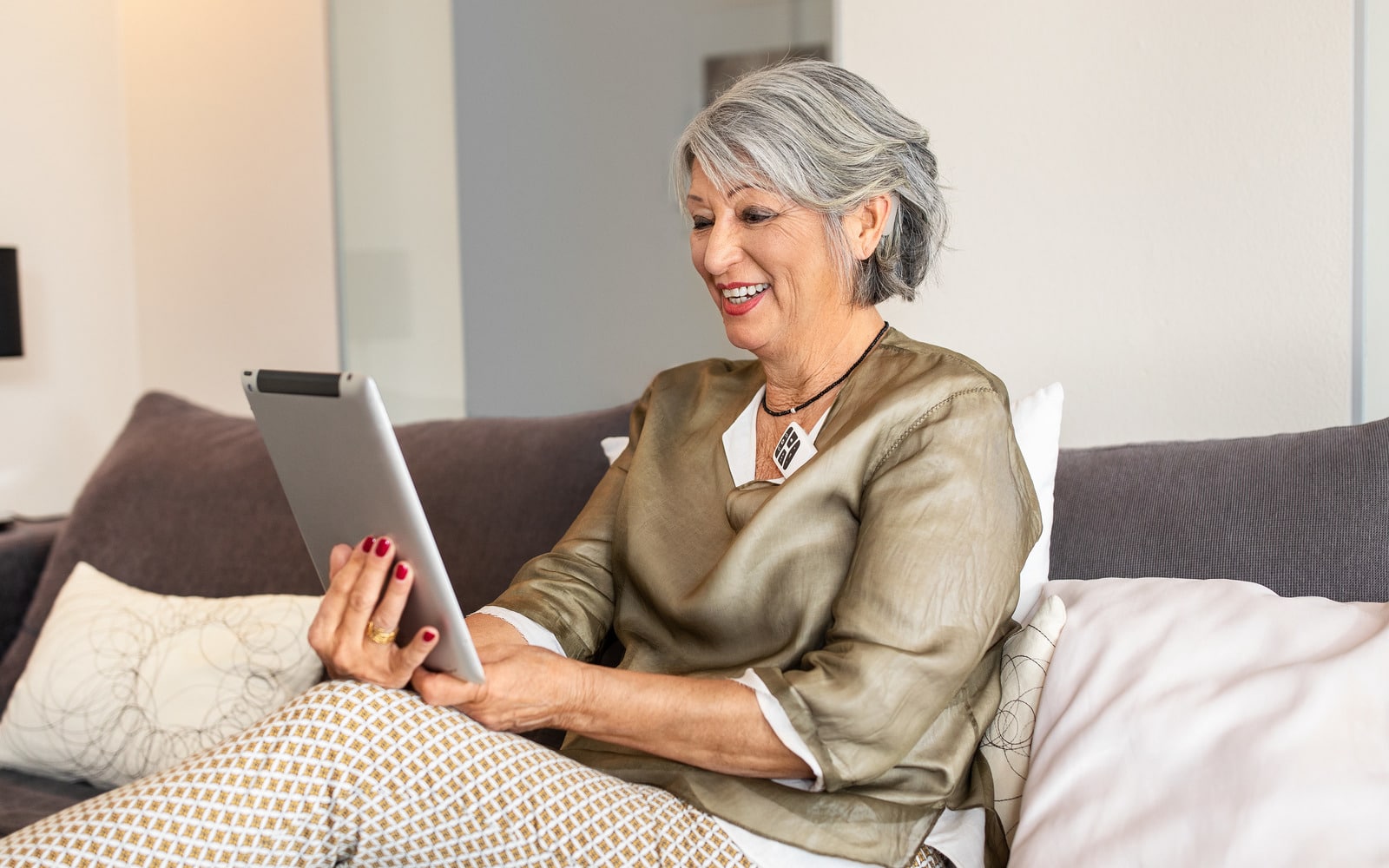Stages of Listening for Adults With Cochlear Implants
If you have received a cochlear implant, you will know that completing auditory rehabilitation is necessary to develop your listening abilities and to get the most from your device. Being able to understand complex auditory information, such as speech with a cochlear implant, takes time and rehabilitation practice as your brain becomes accustomed to and learns to process auditory stimuli from your hearing implant.

Understanding a conversation or talking on the telephone doesn’t simply happen as soon as the processor is switched on; several factors can influence your success, such as consistent use of your audio processor. Here we outline four broad stages of listening skill development that adults move through from activation day to becoming proficient cochlear implant listeners.
Detecting Sounds in Your Environment
Detection is the ability to hear whether a sound is present or not. This is the first skill to develop and is typically observed in the first activation appointment when your cochlear implant processor is switched on and you hear the first beeps. After that, in the first weeks, you will begin to detect and pay attention to more and more sounds in your environment.
To develop this skill:
- Wear your cochlear implant processor as much as possible. This will give your auditory brain time to learn to pay attention to the sound it’s now receiving. Use AudioKey 2 to keep track of your auditory processor wear time.
- Go on listening walks with a family member or friend. Pay attention to all the sounds you detect in that environment. You might not be able to identify all the sounds yet, so have your walking buddy label the sounds they hear.
Discriminating Between Sounds
Discrimination refers to the ability to hear that one sound is different from another. At this stage, you might not know what either of the sounds are, just that they sound different. This skill occurs at different levels. For example, in the early stages, you will be able to hear the difference between a car horn and a bird chirping, a simple drum beat and a long saxophone note, or a long sentence compared to a short sentence.
At a more advanced level, you will hear the difference between a long word and a short word—e.g., grandma vs. dad—and then finer contrasts of sounds in words. At this stage, you won’t necessarily understand the word or make out each sound, but you will hear that it is different from the other.
To develop this skill:
- Practice discriminating between sets of long sentences and short sentences, and long words and short words.
Identifying Words
At the identification stage, you will identify environmental sounds and words. Name, repeat, write down, or point to text or a picture matching the sound or word you heard. At first, work on developing this skill in a “closed set” where you have a small number of options to choose from in front of you, as in a multiple-choice test. At this stage, you might rely on contextual cues to help you to identify words. At a more advanced level, you will be able to identify sounds and words without the need for a clear set of options to choose from.
To develop this skill:
- Have a family member list items for you to write on the shopping list or for you to take out of the fridge before cooking dinner. Ask them to list the items one at a time and see if you can identify each item.
- Play Which is Which? Level 1 on pages 6-8 of Adult Rehabilitation Kit 9.
- Hear from Trudi about how she started identifying environmental sounds, and see how she uses a simple game to practice identification of single words.
Comprehending Meaning
Comprehension is the final stage. Comprehension refers to the ability to understand the meaning of speech that you hear by following directions, answering questions, following stories, or simply participating in conversation. Comprehension of speech also requires auditory memory: the ability to hold auditory information in your working memory so you can act on it.
To develop this skill:
- Continue practicing your listening skills with the MED-EL Adult Rehabilitation Kits.
- Use the flag description activity on pages 11-12 of MED-EL Adult Rehabilitation Kit 5. Hearing descriptions requires you to listen and understand more details rather than simply identifying the single-word name of the country.
Step by Step
Understanding these four steps will help you progress along your hearing journey without getting frustrated. Identifying and understanding the step you’re at will enable you to target your rehab activities so you can build upon and develop the listening skills you have. Recognizing the improvements you are making will help you stay motivated as you make your way toward your best hearing.
Thanks for your message. We will reply as soon as possible.
Send us a message
Field is required
John Doe
Field is required
name@mail.com
Field is required
What do you think?
© MED-EL Medical Electronics. All rights reserved. The content on this website is for general informational purposes only and should not be taken as medical advice. Contact your doctor or hearing specialist to learn what type of hearing solution suits your specific needs. Not all products, features, or indications are approved in all countries.
Gerald Oppliger
March 13, 2024
I have had my cochlear implant since may,2018 and still cannot understand words sufficiently to carry on a conversation. Without my Phonik hearing aid in the other ear, I would not be able to have a conversation. Ihaver followed the practice lessons and had speech help from a specialist for 9 months but nothing has worked.
MED-EL
March 14, 2024
Hi Gerald, thanks for your comment. We suggest getting in touch with your local MED-EL team for a mapping and for getting your device checked on site. You can find them here by searching for your area: https://www.medel.com/clinic-finder Kind regards, Gordana
Bob Heddle
March 13, 2024
I wear my processors for up to 18 hours a day, and although I don’t receive NORMAL speech sounds , the devices deliver plenty sound which I’ve learned to interpret. It certainly beats being totally deaf! So looking back on the journey of the last 3 years, I only wish I’d done it sooner Bird song sounds normal , and enjoyable. Very helpful with the TV
MED-EL
March 14, 2024
Thanks for sharing your feedback with us, Bob!
Gerhard Rogall
March 18, 2024
Hallo, mir geht es wie Herrn Gerald Oppliger, doch leider bin ich auf beiden Seiten implantiert (2019 + 2022) und dadurch völlig taub. Trotz zwei Jahre logopädischer Behandlung und vieler eigener Übungen kann ich mich in meiner Familie nur mangehaft verständigen. Durch die zweite OP ging leider das Restgehör verloren... Ich höre eigentlich gut verstehe aber im privaten und geschäftlichen Umfeld sehr schlecht bis magelhaft.
MED-EL
March 19, 2024
Hallo Gerhard, vielen Dank für dein Kommentar. Dein lokales MED-EL Team wird sich baldmöglichst mit dir in Verbindung setzen, um eine Lösung zu finden. Liebe Grüße, Gordana




Conversation
3 Comments